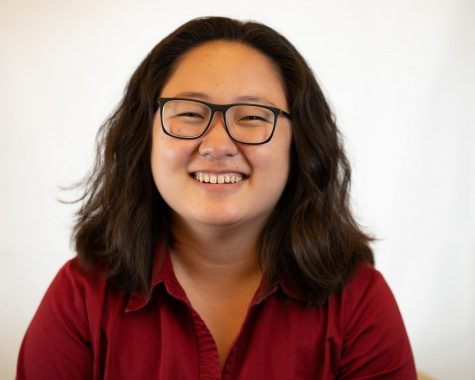ACL Feature: Local Austin musician uses music to express activism
Gina Chavez is a Latin folk musician known for her social activism and unique blend of different genres of music, ranging from reggaeton to cumbia. Hilltop Views got an exclusive interview at the Austin City Limits Music Festival with the eight time Austin music award winner.
Hilltop Views: What’s been the best part of performing at ACL?
CHAVEZ: I feel really honored to be here, kind of representing the hometown team. I hope that people who come to the festival feel like we brought it for the hometown team, because there’s a lot of artists that deserve to be on these stages that are from Austin. So I feel really fortunate that we kind of got a primetime slot and we’re going to knock it out of the park.
HV: You do a mix of so many different types of music. Can you tell us more about that?
CHAVEZ: I usually describe my style as Latin soul pop or Latin folk pop. We do everything from an introspective thoughtful songwriter to indie band to Latin dance and everything in between. There’s a large piece of it that people connect to in the Latin rhythms that maybe I’m singing in English, maybe I’m singing in Spanish… and that’s kind of a big piece in what we’ve really made a name for ourselves with.
HV: Tell us a little about the work you did in El Salvador?
CHAVEZ: So my girlfriend, Jodi, and I, we lived there for eight months in 2009-10, and we lived in a gang dominated part of El Salvador called Soyapango. Basically, fast forward, we taught English to young women in an all girls school, we lived with nuns, and afterwards we decided to start a college scholarship fund. So we do benefit concerts every year to raise money for those young women, and the program is called Niñas Arriba, and that’s the college fund.
HV: You’ve been described as a music activist as many of your songs have strong social justice themes. Was there a point when you realized you wanted to do this?
CHAVEZ: I think that just came naturally. I think the first things that prompted me to start singing were those kinds of moments. I actually did a beat as a journalism student, I was doing a beat on the homeless and that’s what prompted probably what you’d call hits, I mean in my tiny community when I was first starting out as a songwriter. But I wrote a song called St. Anthony and that was one of the cornerstone pieces of my work at the time.
People really loved that song and they connected to it and it was basically from the point of view from different homeless people on the street, kind of like “hey do you see me”. “I’m on the street, I might be asking for buck but can you at least just shake my hand, can you look me in the eye, give me some dignity for a second.
HV: What is one memory of a fan that has stuck out to you?
CHAVEZ: So there’s this song, Todo Cambia. It’s the only cover song that we put on our last album, Up.Rooted. It’s in Spanish, was made famous by an Argentine singer, was written by a Chilean singer, and then I’m a Texan half Mexican. So, to take this song all over the world feels like this world song. It’s a moving song, one that even if people don’t understand it, the chorus is so simple. It means everything changes.
We were playing in Hiroshima, Japan. Oh my gosh, it was like a 15-minute version of this song because the people would not stop singing. We had just gone to Peace Memorial Park, which was a completely moving and beautiful experience.
And then we’re singing this song about how everything changes, which is a very social justice oriented song in Spanish, and these people would not stop singing like I kept trying to fade out the song and end it and people wouldn’t shut up and it was amazing. It was just this beautiful moment where it was this Texan half Mexican half German song writer who’s singing a song in Spanish from Argentina and in Japan singing about peace. That’s a moment I’ll never forget.
HV: What is your personal mantra?
CHAVEZ: I want to be somebody who’s genuine and humble. For me, it’s just constantly trying to take a breath and remember why I’m doing this: to stay humble because I think if I lose myself, I lose everything.

I am Lilli Hime—English Writing and Rhetoric major and freelance writer at Hilltop Views. This is my senior year at St. Edward's University.
My role...






